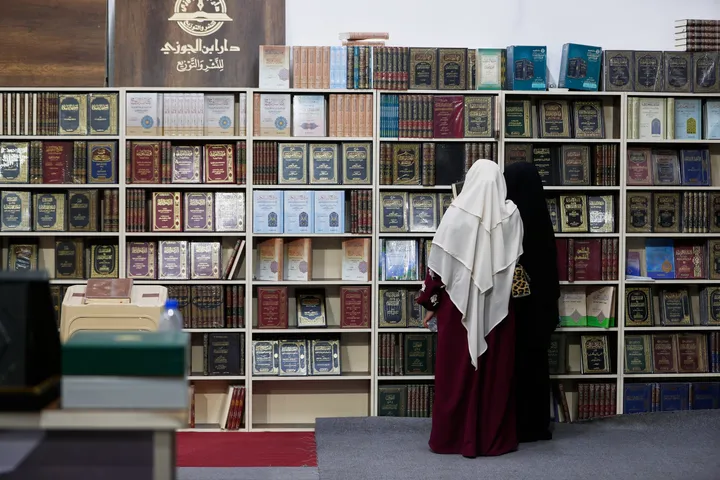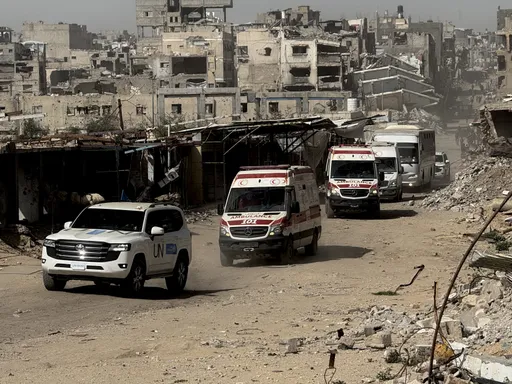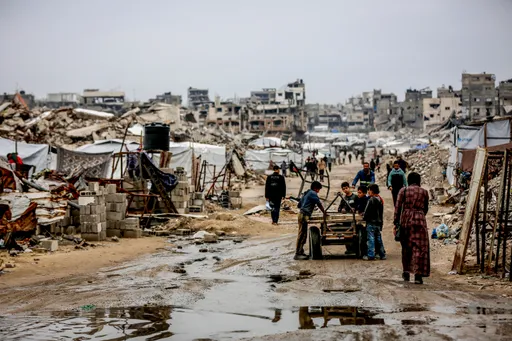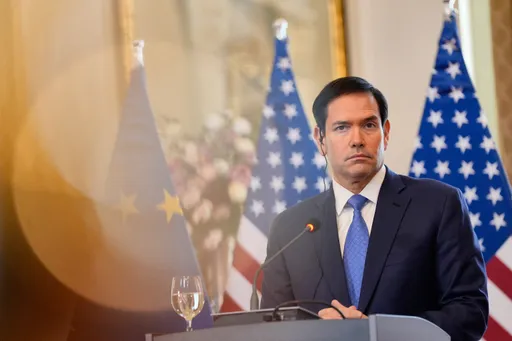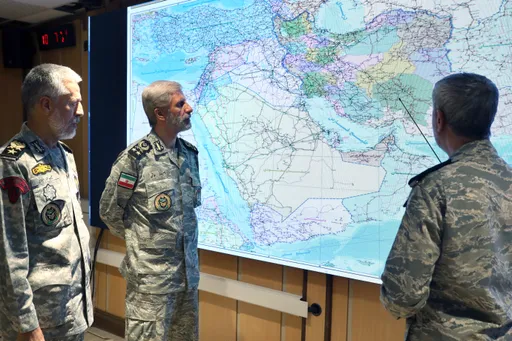XANTHI/ISTANBUL— One April day in 2011, Ahmet Mete received the news that one of the historic graveyards of his city was being bulldozed to build a water tank. Rushing to the hill where the graveyard was located, he and his community members faced a flattened piece of land. Trees had been knocked down and human bones were scattered on the ground.
Mete gathered the bones that he could find, some still half-buried under the newly overturned earth, but not before taking pictures and calling the media to the site.
“We told the state that the land belonged to the waqf [endowment] of the community, and presented Ottoman records of the deeds to the property,” Mete explained. “Of course, when we made some noise, the construction stopped.”
But the community was not able to access the land, and for nearly one year, Mete carried the human bones in the trunk of his car.
“I thought that maybe they would give us back our graveyard, that we would be able to re-bury the bones somehow,” Mete, the elected Mufti of Xanthi said, recalling the events.“But that didn’t happen.”
Instead, they were forced to bury the bones in a graveyard located in another neighbourhood near the city entrance.
“They still haven’t returned the land to us, and the area is still in ruins.” Mete said. “But then again, the graveyard events are just the tip of the iceberg for the community.”
A quiet corner of a historic land
The graveyard in question is a Muslim one in the neighbourhood of Ahiryan, at the top of the hill of Xanthi’s old town. The neighbourhood, with its white houses and tiny local mosque, is the last of the residential areas before its cobbled streets give way to an asphalt road, and finally, to the forests and Balkan villages of Western Thrace.
Some say Ahiryan's name comes from the Ahis, or Ottoman guilds and craftsmen associations that used to live the area. Others claim that it comes from the word aakhir in Arabic, meaning the last, or the end—signalling the borders of the city at the top of the hill. These neighbourhoods are also the last of the Muslim communities in Greece who were once part of the Ottoman state.
In 1923, at the end of the Greco-Turkish war, representatives from France, Britain, what was the Ottoman State at the time, Greece, Romania and a handful of other countries, signed the Treaty of Lausanne after months of deliberations. The treaty delineated, among other things, the borders of modern Turkey.
The treaty also laid out specifics for the protection of Greeks in Turkey and the Muslim inhabitants of Greece. A year earlier, Turkey and Greece had already started a process of “population exchanges,” whereby the Greek Orthodox (“Rum” in Turkish) populations of Turkey were sent to Greece, while the Muslim population of Greece were sent to Turkey. The only communities exempt from this exchange were the Rum community of Istanbul, and the Muslim community of Western Thrace.
The result was a historical enclave in northeastern Greece, where communities from the Ottoman State remain, preserving a unique heritage visible in everything from the religion of the population, the local Turkish dialects, to architecture and the presence of mosques. Some of the older residents are even able to read Ottoman Turkish script.
The rights and protections of the Turkish and Greek minorities have long been thorny issues in Greece–Turkey relations. Diplomatic ups and downs in the two countries’ relations have reverberated within both of the minority communities.
Many other locals recall difficult years—particularly during the Cyprus crisis, the Greek civil war, and the junta. After Greece’s accession to the EU, however, many from the Turkish-Muslim minority said life has become much easier, as had day-to-day affairs. Yet, significant problems remain, and much of the community, and particularly those in leadership positions, are caught between the Greek state and their Western Thrace communities.
“We face many problems, we’ve had crisis after crisis,” Mete said.
Ahmet Mete is perhaps one of the people most familiar with the problems faced by the Turkish-Muslim minority in Western Thrace. As the community's elected Mufti, or highest-ranking religious official of Xanthi, he deals with both civil and administrative issues, as well as the day-to-day religious affairs of the community.
His childhood, studies and career were shaped by his life and struggles as a Turkish Muslim minority in Western Thrace. He experienced its bitterness early on in his childhood when his family sent him to Istanbul for primary and secondary school, due to education difficulties faced by the minority group.
“I was ten when I was deprived of my mother’s embrace,” he explained with sorrow. “And when each of my three children turned 12, I had to send them to Turkey as well. Just as I grew up longing for my mother’s embrace, I grew old longing for my children, longing to show them my love.”
The Lausanne Treaty provided a degree of autonomy for the respective minorities in Greece and Turkey, particularly in the areas of education, religious leadership and endowments, yet these areas have been an arena for the struggle between the minority communities and the Greek state. Even Mete's position as mufti is not recognised by the state.
According to the Treaty, the communities have the rights to choose their respective religious leaders, the elections of which are regulated by the 1913 Treaty of Athens, and Greek Act 2345 in 1920. In 1991, Greece annulled this law to start appointing muftis, under the premises that muftis, who exercise judicial power should be appointed by the state.
However, earlier in 1985, the state appointed a mufti in Komotini, a small city about 50 km away that is home to the biggest Turkish community in Western Thrace, after the death of their locally-chosen mufti.
“In 1990, they [the state] attempted the same thing in Xanthi, but the people here revolted, and chose their own mufti.” The Turkish community in Komotini, which had followed this turn of events in Xanthi also held elections a year later and chose their own mufti. The result has been the bifurcation of the mufti leadership, with two muftis—an official, state-appointed one and a community elected one in Komotini and Xanthi.
For years, there were struggles between the state-appointed mufti and the community-elected one, with the community rejecting the presence of the state-appointed official at various events such as funerals. Several times, Ahmet Mete, who was elected as mufti after the death of the previous mufti of Xanthi in 2006, had been convicted for “usurping authority.”
The latest of this type of conviction and court cases took place in November, when both Mete and the appointed mufti showed up last year for the funeral duties of a conscript soldier from the Turkish minority who lost his life in the line of duty. The community prevented the state-appointed mufti from leading the prayer or from speaking at the funeral, and the official mufti and two other Greek citizens filed a complaint against Mete.
“The events of 10 years ago are repeating themselves,” is how Mete described the situation. His voice took on a tired, but accustomed tone when talking about the hearings. “It seems more court hearings will be waiting for us in the future,” he said.
Despite the tensions, the community has struck a tenuous deal of sorts—there are a total of 96 mosques in Xanthi and its villages. Of these, only one is under the leadership of the state-appointed mufti. All of the other imams are chosen by the local communities in consultation with the elected mufti.
“Those imams are affiliated with us—the state-appointed mufti is unable to go to any of our mosques, and he is unable to lead any prayers at [our] mosques, and in return, we don’t go to his mosque,” Mete explains. “However, the stamp of the state, the state’s authority is in his hands, so he causes problems for us and refuses to recognise us.”
The situations can also take a turn for the worse. The state-appointed mufti is known to show up at funerals and other events despite the aforementioned agreement—only to be driven away by the community.
Other times, the official mufti has to show up at every event, but community pressures mean he often remains in a nearby vehicle. These balances can take other forms as well—with imams finding creative solutions that incorporate both Greek civil and Islamic traditions. One imam recalled how he had to strike a balance between the civil code for the funeral of a soldier and Islamic tradition. “The Greek code says I have to wrap him in a Greek flag—that doesn’t work with our traditions. But the authorities were standing there, and they said they couldn’t walk away until the burial was done in the official fashion.”
The imam compromised by folding the flag and burying it with the body. “That way, the authorities could say that the flag was indeed buried with the body, but the burial was still in line with our traditions.”
Along with this sort of compromise, however, Mete still described the life of minorities as that of a struggle.
For most of the community, daily life continues in Western Thrace with regular neighbourly and friendly relations between Turkish Muslims and Greeks. Turkish and Greek residents of Xanthi both spoke of good relations with one another, as did Mete. “We always had good relations, we never disregarded our brotherly relations."
"What ruins us are politicians and racists.”
At the same time, many Turkish residents were still hesitant to talk about current issues facing the community, or even past ones. Most repeated the phrase, “we are thankful for our current situation.”
As a community leader, Mete, whether through court hearings or media appearances, said he continues to advocate for the rights of the minority. He is accustomed to speaking to the media, which showed in his listing of the various problems faced by the community, including those of denial of ethnic identity, education or religious representation. However, he said, some of the responsibility also falls on Turkey, which is the guarantor state for the rights of the minorities.
“We are waiting for the Greek state’s justice, and Turkey has always looked out for us, but we expect more,” Mete said. “But Turkey is facing a lot of problems, and Greece is overwhelmed by crisis, so who knows when our turn will come?”
“Our issues are left to God in the end, perhaps.”



